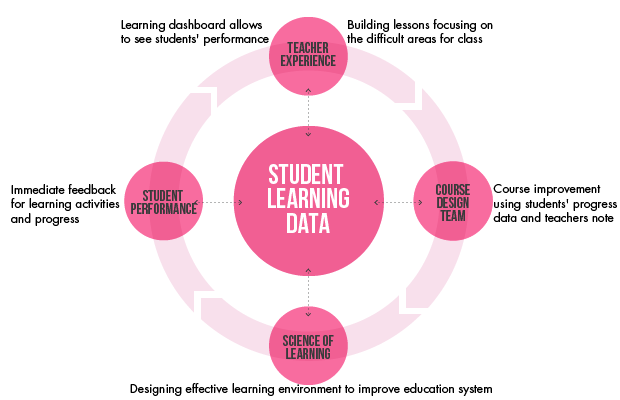![]() 3 minute read
3 minute read
If we look at how children educate and develop themselves nowadays and compare to how they did 20 years ago, the distinction is large. Skills needed to survive and be successful now and then are vastly different. Just give this a thought: We are the last generation who remember life without the Internet.
Ground zero for adaptive learning
One of the largest public universities in the USA has become a benchmark for data-driven teaching. Using computers as interactive teaching devices has already showed its outcome at Arizona State University. Professors using adaptive learning succeed in understanding problems students meet when it comes to learning new material. The method gives instructors real time information on how well each of their students masters the subject. In fact, competency-based learning approach reportedly increased pass rates. So far, the adaptive learning concept performs only in quantitative courses like mathematics, nevertheless program-developing companies are working on ways to implement programs to other areas.
Computer tracks the progress
Using specialized computer programs is a way to treat each student as an individual and to give a basis to a student’s ability to create original ideas and develop problem-solving skills that have a value. Competency-based learning programs have several benefits when it comes to personalised learning. Personalised computer programs aid teachers to implement personal approaches. Programs allow tailoring the educational programme individually for each student increasing overall productivity by paying attention to every person separately. The computer tracks the time the student spends on the task, analyses number of clicks the student’s progress. Determining the stage on which the student has difficulties, the computer offers additional learning material and exercises to help the student to overtake the subject in the most effective way with an instructor in the role of a facilitator. Using this learning method allows students to learn individually on the personally adjusted speed level.
Autonomous teaching software

Autonomous teaching software has been demonstrating effectiveness in Carnegie Mellon University with its Open Learning Initiative. As the university describes its online-based learning the platform, it is a transformation of higher education through science of learning. Platform offers up to 10 courses and uses data-driven techniques to improve students’ and teachers’ experience and performance. Real-time collected data makes it possible to correct, suggest and tailor individual students’ learning process. At the same time it provides teachers with useful information about their classes progress and helps them focus on the most difficult parts of the course. Next feedback loop is for the course design team to refine and develop new theories about human learning. Finally, all the data is used to conduct research and develop the future Science of Learning.
The previous millennium has been determined as an era of industrialisation, where the goal of education was the prepare new generations to meet the demands of rising industrialism. In other words, the task was to create a workforce that works like machines in the factories. Consequently, the approach to students was similar to robots, teaching them not to distinguish from each other and prepare them to perform mechanical types of jobs. Such attitude caused several cultural revolutions aiming to advance the understanding of individuality. With the remains of this acumen still visible in today’s world, the new wave of individual approach to each sphere of society causes changes in the educational system as well.




